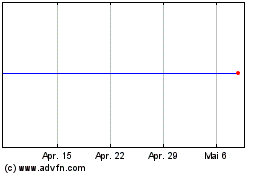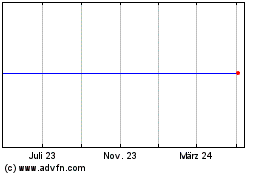FORM 6-K
SECURITIES
AND EXCHANGE COMMISSION
Washington,
D.C. 20549
Report
of Foreign Issuer
Pursuant
to Rule 13a-16 or 15d-16 of
the
Securities Exchange Act of 1934
For the
month of December 2022
Commission
File Number: 001-11960
AstraZeneca PLC
1
Francis Crick Avenue
Cambridge
Biomedical Campus
Cambridge
CB2 0AA
United
Kingdom
Indicate
by check mark whether the registrant files or will file annual
reports under cover of Form 20-F or Form 40-F.
Form
20-F X
Form 40-F __
Indicate
by check mark if the registrant is submitting the Form 6-K in paper
as permitted by Regulation S-T Rule 101(b)(1):
Indicate
by check mark if the registrant is submitting the Form 6-K in paper
as permitted by Regulation S-T Rule 101(b)(7): ______
Indicate
by check mark whether the registrant by furnishing the information
contained in this Form is also thereby furnishing the information
to the Commission pursuant to Rule 12g3-2(b) under the Securities
Exchange Act of 1934.
Yes
__
No X
If
“Yes” is marked, indicate below the file number
assigned to the Registrant in connection with Rule 12g3-2(b):
82-_____________
AstraZeneca PLC
INDEX
TO EXHIBITS
1. Imfinzi approved in EU for biliary tract cancer
21 December 2022 07:00 GMT
Imfinzi plus
chemotherapy approved in the EU as first
immunotherapy
regimen for patients with advanced biliary tract
cancer
Approval based on TOPAZ-1 updated survival results showing
Imfinzi
combination reduced risk of death by 24% vs. chemotherapy
alone
AstraZeneca's Imfinzi (durvalumab) has been approved in the
European Union (EU) for the 1st-line treatment of adult patients
with unresectable or metastatic biliary tract cancer (BTC) in
combination with chemotherapy (gemcitabine plus
cisplatin).
The approval by the European Commission was based on the primary
results from the TOPAZ-1 Phase III trial published in
the New
England Journal of Medicine Evidence, and on the updated results presented at
the European Society for
Medical Oncology Congress 2022.
The approval follows the recommendation by
The Committee for Medicinal Products for Human Use of the European
Medicines Agency in November 2022.
At the interim
analysis, Imfinzi plus chemotherapy reduced the risk of death
by 20% versus chemotherapy alone (based on a hazard ratio [HR] of
0.80; 95% confidence interval [CI] 0.66-0.97;
p=0.021). Updated results from TOPAZ-1 after an
additional 6.5 months of follow-up showed a 24% reduction in the
risk of death versus chemotherapy alone (HR 0.76; 95% CI,
0.64-0.91), with more than two times as many patients treated
with Imfinzi plus chemotherapy estimated to be alive at
two years versus chemotherapy alone (23.6% versus 11.5%). Updated
median overall survival (OS) was 12.9 months versus 11.3 with
chemotherapy.
BTC is a group of rare and aggressive cancers that occur in the
bile ducts (cholangiocarcinoma) and gallbladder.1,2 There
are approximately 211,000 new patients diagnosed with gallbladder
and biliary tract cancer each year, and about 40,000 of these occur
across Europe.3 These
patients have a poor prognosis, with approximately 5% to 15% of
patients with BTC surviving five years.4
Juan W. Valle, MD, Professor of Medical Oncology at the University
of Manchester and The Christie NHS Foundation Trust, UK, and a lead
investigator in the TOPAZ-1 Phase III trial, said: "Today's
approval marks an important shift in the treatment of this
aggressive and often overlooked disease and a significant
improvement compared to standard of care for these patients. After
waiting over a decade for new therapeutic options, biliary tract
cancer patients in the EU will now have the opportunity to benefit
from an immunotherapy-based treatment for the first
time."
Dave Fredrickson, Executive Vice President, Oncology Business Unit,
AstraZeneca, said: "With this approval, Imfinzi plus chemotherapy becomes the only
immunotherapy-based treatment option available to patients in the
EU with advanced biliary tract cancer. This approval underscores
our commitment to transform survival outcomes while addressing the
high unmet need for new and improved treatments for patients with
hepatobiliary cancers."
Imfinzi plus chemotherapy
was generally well tolerated, with no new safety signals observed,
and did not increase the discontinuation rate due to adverse events
(AEs) compared to chemotherapy alone. Grade 3 or 4
treatment-related AEs were experienced by 60.9% of patients treated
with Imfinzi plus chemotherapy, and by 63.5% of patients
treated with chemotherapy alone.
Imfinzi plus chemotherapy
is approved in
the US and other countries for the treatment of adults with locally
advanced or metastatic BTC. Regulatory applications are also
currently under review in Japan and several
other countries based on the TOPAZ-1 results.
Notes
Biliary tract cancer
BTC is a group of rare and aggressive gastrointestinal (GI) cancers
that form in the cells of the bile ducts (cholangiocarcinoma),
gallbladder or ampulla of Vater (where the bile duct and pancreatic
duct connect to the small intestine).1,2
Early-stage BTC affecting the bile ducts and gallbladder often
presents without clear symptoms and most new cases of BTC are
therefore diagnosed at an advanced stage, when treatment options
are limited and the prognosis is poor.4-6 Cholangiocarcinoma
is more common in China and Southeast Asia and is on the rise
in Western countries.1,4
TOPAZ-1
TOPAZ-1 was a randomised, double-blind, placebo controlled,
multicentre, global Phase III trial of Imfinzi in combination with chemotherapy
(gemcitabine plus cisplatin) versus placebo in combination with
chemotherapy as a 1st-line treatment in 685 patients with
unresectable advanced or metastatic BTC including intrahepatic and
extrahepatic cholangiocarcinoma, and gallbladder cancer. Patients
with ampullary carcinoma were excluded.
The primary endpoint was overall survival and key secondary
endpoints included progression-free survival, objective response
rate and safety. The trial was conducted in 105 centres across 17
countries including in the US, Europe, South America and several
countries in Asia including South Korea, Thailand, Japan and
China.
Imfinzi
Imfinzi (durvalumab) is a
human monoclonal antibody that binds to the PD-L1 protein and
blocks the interaction of PD-L1 with the PD-1 and CD80 proteins,
countering the tumour's immune-evading tactics and releasing the
inhibition of immune responses.
Imfinzi is the only
approved immunotherapy in unresectable or metastatic BTC,
unresectable hepatocellular carcinoma [in combination
with Imjudo (tremelimumab)], and the curative-intent
setting of unresectable, Stage III non-small cell lung cancer
(NSCLC) in patients whose disease has not progressed after
chemoradiotherapy. It is the global standard of care in this
setting based on the PACIFIC Phase III trial.
Imfinzi is also approved
in the US, EU, Japan, China and many other countries around the
world for the treatment of extensive-stage small cell lung cancer
(ES-SCLC) based on the CASPIAN Phase III trial. In 2021,
updated results from the CASPIAN trial
showed Imfinzi plus chemotherapy tripled patient survival
at three years versus chemotherapy alone.
Imfinzi is also approved
in the US for the treatment of adult patients with Stage IV
(metastatic) NSCLC in combination with Imjudo and chemotherapy.
Imfinzi is also approved
for previously treated patients with advanced bladder cancer in
several countries.
As part of a broad development programme, Imfinzi is being tested as a single treatment and in
combinations with other anti-cancer treatments for patients with
SCLC, NSCLC, bladder cancer, several GI cancers, ovarian cancer,
endometrial cancer, and other solid tumours.
AstraZeneca in GI cancers
AstraZeneca has a broad development programme for the treatment of
GI cancers across several medicines and a variety of tumour types
and stages of disease. In 2020, GI cancers collectively represented
approximately 5.1 million new cancer cases leading to approximately
3.6 million deaths.7
Within this programme, the Company is committed to improving
outcomes in gastric, liver, biliary tract, oesophageal,
pancreatic, and colorectal cancers.
Imfinzi is approved in the
US in combination with chemotherapy (gemcitabine plus cisplatin)
for advanced BTC and in combination with Imjudo in unresectable hepatocellular
carcinoma. Imfinzi is being assessed in combinations,
including with Imjudo in liver, oesophageal and gastric
cancers in an extensive development programme spanning early to
late-stage disease across settings.
Enhertu (trastuzumab
deruxtecan), a HER2-directed antibody drug conjugate, is approved
in HER2-positive advanced gastric cancer and is being assessed in
colorectal cancer. Enhertu is jointly developed and commercialised by
AstraZeneca and Daiichi Sankyo.
Lynparza (olaparib), a
first-in-class PARP inhibitor, is approved in BRCA-mutated
metastatic pancreatic cancer. Lynparza is developed and commercialised in
collaboration with MSD (Merck & Co., Inc. inside the US
and Canada).
AstraZeneca in immuno-oncology (IO)
AstraZeneca is a pioneer in introducing the concept of
immunotherapy into dedicated clinical areas of high unmet medical
need. The Company has a comprehensive and diverse IO portfolio and
pipeline anchored in immunotherapies designed to overcome evasion
of the anti-tumour immune response and stimulate the body's immune
system to attack tumours.
AstraZeneca aims to reimagine cancer care and help transform
outcomes for patients with Imfinzi as
a single treatment and in combination with Imjudo as well as other novel immunotherapies and
modalities. The Company is also exploring next-generation
immunotherapies like bispecific antibodies and therapeutics that
harness different aspects of immunity to target
cancer.
AstraZeneca is boldly pursuing an innovative clinical strategy to
bring IO-based therapies that deliver long-term survival to new
settings across a wide range of cancer types. With an extensive
clinical programme, the Company also champions the use of IO
treatment in earlier disease stages, where there is the greatest
potential for cure.
AstraZeneca in oncology
AstraZeneca is leading a revolution in oncology with the ambition
to provide cures for cancer in every form, following the science to
understand cancer and all its complexities to discover, develop and
deliver life-changing medicines to patients.
The Company's focus is on some of the most challenging cancers. It
is through persistent innovation that AstraZeneca has built one of
the most diverse portfolios and pipelines in the industry, with the
potential to catalyse changes in the practice of medicine and
transform the patient experience.
AstraZeneca has the vision to redefine cancer care and, one day,
eliminate cancer as a cause of death.
AstraZeneca
AstraZeneca (LSE/STO/Nasdaq: AZN) is a global, science-led
biopharmaceutical company that focuses on the discovery,
development, and commercialisation of prescription medicines in
Oncology, Rare Diseases, and BioPharmaceuticals, including
Cardiovascular, Renal & Metabolism, and Respiratory &
Immunology. Based in Cambridge, UK, AstraZeneca operates in over
100 countries and its innovative medicines are used by millions of
patients worldwide. Please visit astrazeneca.com and
follow the Company on Twitter @AstraZeneca.
Contacts
For details on how to contact the Investor Relations Team, please
click here.
For Media contacts, click here.
References
1.
Marcano-Bonilla
L, et
al. Biliary
tract cancers: epidemiology, molecular pathogenesis and genetic
risk associations. CCO.
2016;5(5).
2.
ESMO.
What is Biliary Tract Cancer. Available at:
3.
https://www.esmo.org/content/download/266801/5310983/1/EN-Biliary-Tract-Cancer-Guide-for-Patients.pdf.
Accessed December 2022.
4.
Ouyang G, et al. The global, regional, and national burden of
gallbladder and biliary tract cancer and its attributable risk
factors in 195 countries and territories, 1990 to 2017: A
systematic analysis for the Global Burden of Disease Study
2017. Cancer. 2021;127:2238-2250.
5.
Turkes F, et al. Contemporary Tailored Oncology Treatment of
Biliary Tract Cancers. Gastroenterol Res
Pract. 2019;2019:7698786.
6.
Rawla P, et al. Epidemiology of gallbladder
cancer. Clin Exp
Hepatol.
2019;5(2):93-102.
7.
Banales
JM, et
al. Cholangiocarcinoma
2020: the next horizon in mechanisms and
management. Nat Rev
Gastroenterol Hepatol.
2020;17:557-588.
8.
WHO.
World Cancer Fact Sheet. Available at:
https://gco.iarc.fr/today/data/factsheets/populations/900-world-fact-sheets.pdf.
Accessed December 2022.
Adrian Kemp
Company Secretary
AstraZeneca PLC
SIGNATURES
Pursuant
to the requirements of the Securities Exchange Act of 1934, the
Registrant has duly caused this report to be signed on its behalf
by the undersigned, thereunto duly authorized.
Date:
21 December 2022
|
|
By: /s/
Adrian Kemp
|
|
|
Name:
Adrian Kemp
|
|
|
Title:
Company Secretary
|
AstraZeneca (NYSE:AZN)
Historical Stock Chart
Von Mär 2024 bis Apr 2024

AstraZeneca (NYSE:AZN)
Historical Stock Chart
Von Apr 2023 bis Apr 2024
